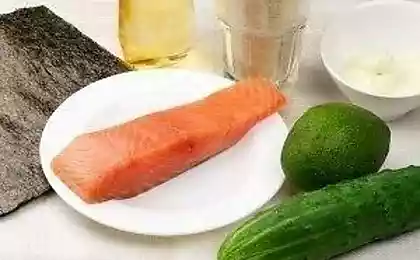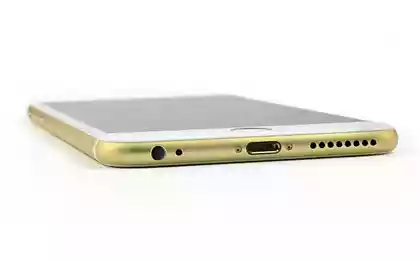518
21 steps to make your home more environmentally friendly and safe for health
Today most of the houses had become not only miniparty for the production of waste, and the places where, alone, can consume excessive natural resources. In addition, we, their owners, trying to make these places more comfortable and enjoyable to care of their own hands and turn their houses into the chamber for the destruction of the health of our children. It is time to change everything. Fortunately, you can start gradually and with quite simple steps.

1. Minimize household waste. Sort your garbage, taking away fractions of biodegradable waste, separate paper, separate plastic and PET and aluminum cans.
2. If you live in a private house, build compost box and compost biological waste. It is only at first sight seems ugly and complicated. In fact, You own hands are creating in the truest sense of the word soil.
3. Recycle all as possible. For example, the old thing can be used as material for new, and it will be no worse than bought new
To breathe new life in old clothes, textiles, furniture, bananu and cardboard, aluminum cans, bottles.
4. If You expect the construction costs to invest in the design of a passive house, where the orientation to the cardinal points, and an elaborate form, design and materials will allow you to use low thermal and electric energy.
5. Choose the house size that meets your needs. In the last half century, the area houses only increased. Today,, a large area becomes burdensome — not only because of the high kommunalnih payments, over such an area difficult to treat.and the house itself becomes a burden for its owner.
6. Go to heating /cooling with renewable sources of energy.
7. Produce your own electricity by installing home solar panels.
8. Minimize energy consumption through the elimination of unnecessary waste. Insulate the building, replace doors and Windows minimize heat loss through the attic and basement.
9. Turn off all electrical appliances and remove the cords from the outlets when not using them, because they can consume energy, even when switched off, but connected.
10. Keep to an absolute minimum (or even better, eliminate) the use of household chemicals. Choose washing powders, cleaning products and detergents with only reputable eco-labeling.
11. Use soda, mustard, lemon, to wash/clean the dishes and bathroom. With these simple and natural remedies you can deal with most contaminants.
12. Use cold water for washing dishes and Laundry. If the contamination is small, cold water quite cope with them.
13. Use reusable napkins made of fabric and eliminate the use of paper.
14. Use reusable dishes and eliminate the use of plastic
and paper plates and cups and disposable Cutlery.
15. Cook and eat at home. Of course, this advice does not work if home cooking is something of a welded semi-finished dumplings. However, any attempt to prepare healthy meals at home is more valuable than those bought in the restaurant.
16.Plan on cooking several dishes at once when using the oven in order for it to fully load.
17. Instead of buying books, order them online or electronic versions, or take in the local library.
18. Use a shower instead of a bath, and the time spent in the shower will reduce. Another great help to save water in the new dispensers for the shower, turning the water in the likeness of the couple.
19. Don't let the pointless water flow from the tap- whether it be in the bathroom when brushing your teeth, or in the kitchen when washing food or dishes, turn off the tap when water is not desired.
By the way, the toilet is also a concern. You do not always need to pour a full tank of water, right?
20. Before you buy something new into the house, look in the sites auctions. Not only on ebay but on sites like olx.com and on specialized websites put a lot of things in excellent condition, looking for his second life.
21. If you buy something new into the house, let it be environmentally friendly. This applies to literally everything. From non-toxic natural paint for walls and LED light, to brushes for cleaning glassware and caring for home vegetable and recycled materials, the cushions of the vegetable filler is down and your home Slippers made from organic cotton instead of acrylic. published
Author: Yulia Berezovsky
P. S. And remember, only by changing their consumption — together we change the world! ©
Join us in Facebook , Vkontakte, Odnoklassniki
Source: www.ecohunterjulia.com/#!blog/c177y

1. Minimize household waste. Sort your garbage, taking away fractions of biodegradable waste, separate paper, separate plastic and PET and aluminum cans.
2. If you live in a private house, build compost box and compost biological waste. It is only at first sight seems ugly and complicated. In fact, You own hands are creating in the truest sense of the word soil.
3. Recycle all as possible. For example, the old thing can be used as material for new, and it will be no worse than bought new
To breathe new life in old clothes, textiles, furniture, bananu and cardboard, aluminum cans, bottles.
4. If You expect the construction costs to invest in the design of a passive house, where the orientation to the cardinal points, and an elaborate form, design and materials will allow you to use low thermal and electric energy.
5. Choose the house size that meets your needs. In the last half century, the area houses only increased. Today,, a large area becomes burdensome — not only because of the high kommunalnih payments, over such an area difficult to treat.and the house itself becomes a burden for its owner.
6. Go to heating /cooling with renewable sources of energy.
7. Produce your own electricity by installing home solar panels.
8. Minimize energy consumption through the elimination of unnecessary waste. Insulate the building, replace doors and Windows minimize heat loss through the attic and basement.
9. Turn off all electrical appliances and remove the cords from the outlets when not using them, because they can consume energy, even when switched off, but connected.
10. Keep to an absolute minimum (or even better, eliminate) the use of household chemicals. Choose washing powders, cleaning products and detergents with only reputable eco-labeling.
11. Use soda, mustard, lemon, to wash/clean the dishes and bathroom. With these simple and natural remedies you can deal with most contaminants.
12. Use cold water for washing dishes and Laundry. If the contamination is small, cold water quite cope with them.
13. Use reusable napkins made of fabric and eliminate the use of paper.
14. Use reusable dishes and eliminate the use of plastic
and paper plates and cups and disposable Cutlery.
15. Cook and eat at home. Of course, this advice does not work if home cooking is something of a welded semi-finished dumplings. However, any attempt to prepare healthy meals at home is more valuable than those bought in the restaurant.
16.Plan on cooking several dishes at once when using the oven in order for it to fully load.
17. Instead of buying books, order them online or electronic versions, or take in the local library.
18. Use a shower instead of a bath, and the time spent in the shower will reduce. Another great help to save water in the new dispensers for the shower, turning the water in the likeness of the couple.
19. Don't let the pointless water flow from the tap- whether it be in the bathroom when brushing your teeth, or in the kitchen when washing food or dishes, turn off the tap when water is not desired.
By the way, the toilet is also a concern. You do not always need to pour a full tank of water, right?
20. Before you buy something new into the house, look in the sites auctions. Not only on ebay but on sites like olx.com and on specialized websites put a lot of things in excellent condition, looking for his second life.
21. If you buy something new into the house, let it be environmentally friendly. This applies to literally everything. From non-toxic natural paint for walls and LED light, to brushes for cleaning glassware and caring for home vegetable and recycled materials, the cushions of the vegetable filler is down and your home Slippers made from organic cotton instead of acrylic. published
Author: Yulia Berezovsky
P. S. And remember, only by changing their consumption — together we change the world! ©
Join us in Facebook , Vkontakte, Odnoklassniki
Source: www.ecohunterjulia.com/#!blog/c177y























